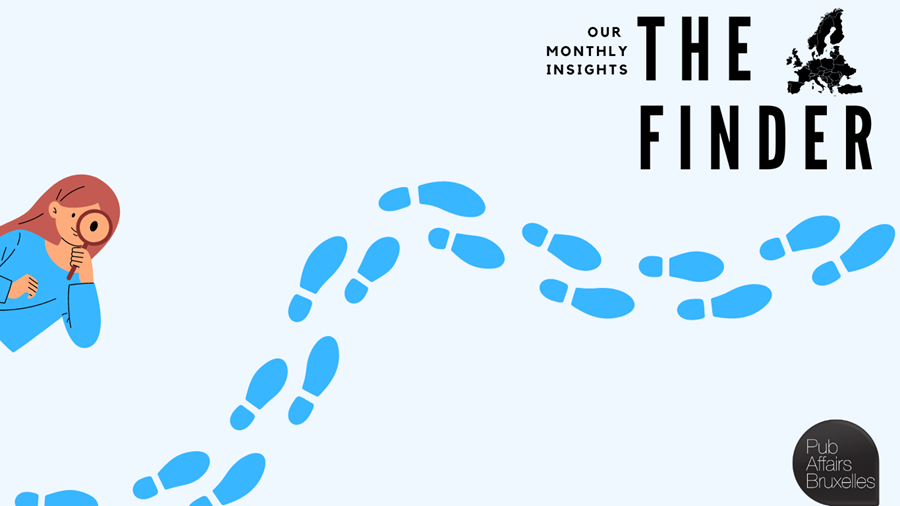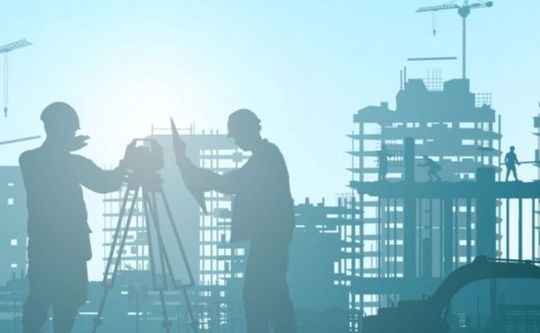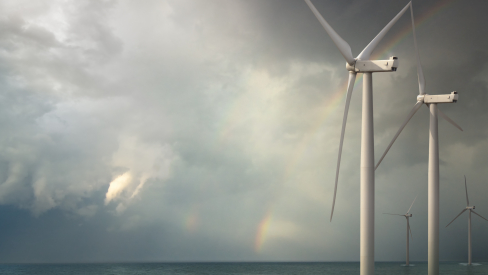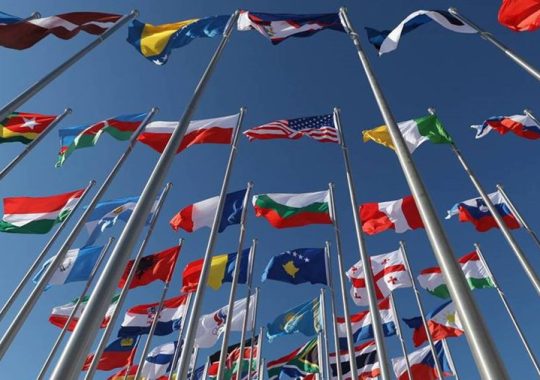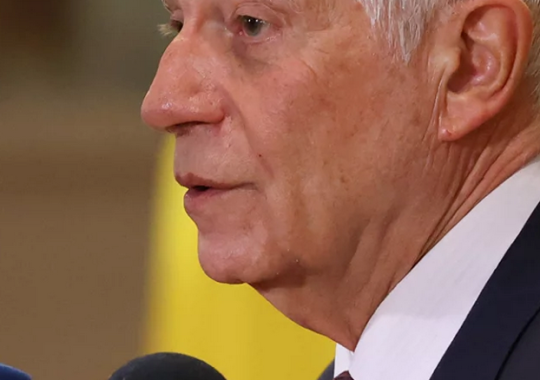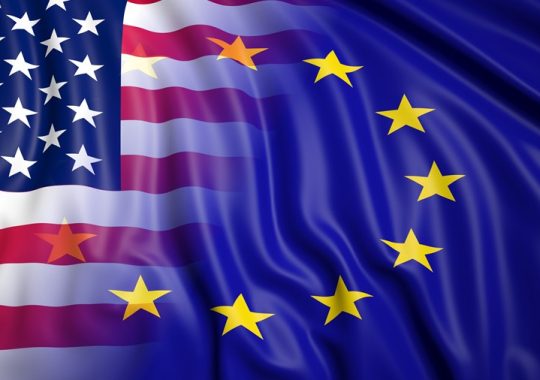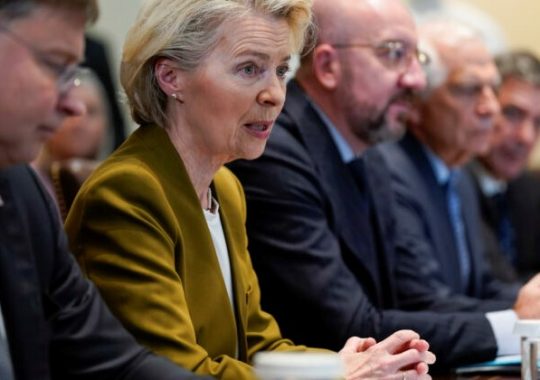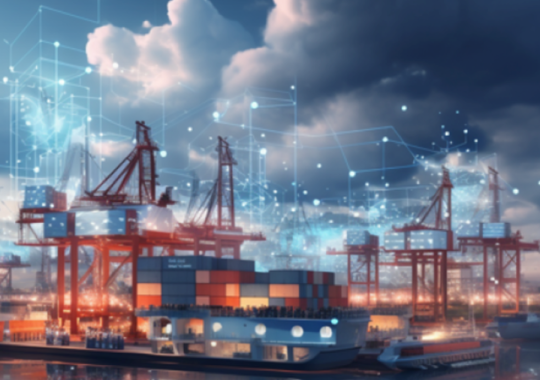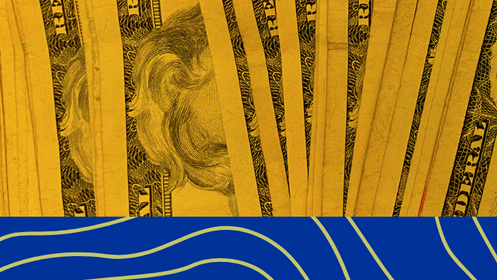While the European Elections are approaching, the question on how to combine EU competitiveness and the green transition has underpinned directly and indirectly the European public debate. In fact, the old continent is grappling with the question of how to steer through current and future global power dynamics, while nurturing both its economic well-being and security. Within this context the discussion over the Ukraine war continues to spark debate both sides of the Atlantic.
In November, a Financial Times article on how the EU can regain its competitiveness generated a discussion among pundits on what would be the correct methodology to use to compare two economies, in this instance, those of the EU and the US. Notably, this discussion occurred after the European Union entrusted the writing of “an independent High-Level Report on the future of the Single Market” to former Italian PM Enrico Letta and sought advice from former ECB President Mario Draghi on how to boost EU competitiveness at the end of the legislative period, which has kick started the green transition of the EU economy.
Scholarly articles and a sharp focus from various think-tanks on these topics have significantly increased over the past six months, and the Brussels-based Centre for European Policy Studies (CEPS) has been actively involved. Professor Pelkmans’ in-depth analysis brought attention to several crucial points. Firstly, he highlighted that the European Union’s single market is notably less robust than commonly believed, and its unity is not as pronounced as its name implies. Secondly, he emphasised that addressing this situation is imperative for EU policymakers and should be treated as a pressing concern. Lastly, he stressed that rectifying these issues necessitates ownership and leadership from the EU’s political figures.
On the question of how to steer through current and future global dynamics by taking the angle of the green transition, an Ifri analysis remarked that “the European Green Deal has not been planned for the current extraordinarily deteriorated internal and external environment. Russia’s war in Ukraine, higher interest rates, inflation, strained public finances, weakened value chains, and lack of crucial skills pose unprecedented challenges”.
Written shortly before this year’s Munich Security Conference, a Project Syndicate’s commentary on the current state of play of the global arena touched on the same dynamics, arguing that if there was ever a time when the global community seemed to be progressing towards a more peaceful and equitable world order, it was during the initial years following the end of the Cold War. The authors also remark that “key actors in the transatlantic community and the Global South have become dissatisfied with what they perceive as an unequal distribution of the gains from global cooperation” and feared that the fragmentation of the world economy could derail [green] economic growth “turning zero-sum thinking into a self-fulfilling prophecy”.
Not by chance, the second part of a brief from the European Centre for Development Policy Management (ECDPM) questioned current trends and their repercussion on cooperation polices which seem to drive towards a “more systemic change” as “in many European countries, foreign and development policy and commercial and economic policy priorities are being rethought and rewritten”.
If the European Green Deal could be considered as the major achievement of the current Commission, the issue of the EU’s strategic autonomy has in the meantime re-emerged as a result of the increased interconnection between geopolitical and (geo)economic factors. On this note, a research paper from the German Institute for International and Security affairs (SWP) investigated the global significance of the euro not only in terms of further European political and economic integration, but also “as a priority in efforts to strengthen the EU’s strategic autonomy”.
Regarding Europe’s strategic autonomy, or better said, regarding the European continent acting as an actual geopolitical polity, an opinion piece from Tibor Dessewffy at the European Council on Foreign Relations (ECFR) affirmed that “it is not just desirable but essential for the EU to embark on a transformation into an assertive and empowered geopolitical entity”.
It is noticeable that the discussion on the global positioning of the old continent has oscillated between the matter of Europe’s economic well-being and the necessity of being more assertive in the global stage. Regarding the former question, a policy brief from the Centre for European Reform (CER) emphasised that Europe’s economic model faces significant threats due to the fact that “EU lacks instruments to step up its green industrial policy in response to growing US and Chinese economic nationalism”, while another policy brief from the Clingendael Institute urges policy-makers and businesses to work together in order to overcome the challenges of the “triple transition of geopolitics, sustainability and digitalisation”.
Within this context the debate over the Ukraine war continues to feature high on both sides of the Atlantic. Indeed, while the recent declaration from France’s President Emmanuel Macron did not rule out sending European troops to Ukraine, which has also generated debate among European governments, a paper from Finabel on the politics of aid during the Ukraine War highlighted that “it is becoming difficult to analyse the 2022 conflict without also evaluating the political debate in Washington D.C. This debate is becoming particularly relevant among ‘America First’ supporters who question the continued financial and military aid provided by the United States”.
This editorial is authored by Massimiliano Gobbato, Communications Director.
Contributions by PubAffairs Communications Team’s Nicole Finucci, Aoife Gilmartin and Kristina Vilenica to the drafting of ‘The Finder’ are gratefully acknowledged.
From our Editorial Partners
For the EU’s prosperity, we must empower the single market now | Centre for European Policy Studies (CEPS)
When the EU marked 30 years of the single market in 2023, a report should have been written about it but was not even requested. The core of the unwritten report would have concluded that the EU’s single market is far weaker than assumed and not nearly as ‘single’ as the name suggests.
How Can the Green Deal Adapt to a Brutal World? | The French Institute for International relations (Ifri)
The European Green Deal has not been planned for the current extraordinarily deteriorated internal and external environment. Russia’s war in Ukraine, higher interest rates, inflation, strained public finances, weakened value chains, and lack of crucial skills pose unprecedented challenges
No one wins in a lose-lose world | Project Syndicate (PS)
By invading Ukraine in February 2022 Russia has thrown the European security order into the waste bin. In essence, the Western reaction has been ‘we will not fight, but we will support Ukraine in its war effort’.
What is driving change in Europe’s international cooperation agenda? Part 2 | European Centre for Development Policy Management (ECDPM)
Based on off-the-record interviews with fourteen senior officials in Europe, Andrew Sherriff and Pauline Veron have explored what is driving change in Europe’s international cooperation agenda. In the second brief of their two-part series, they look at ways forward for Europe’s international cooperation.
The Euro in a World of Dollar Dominance | German Institute International and Security Affairs (SWP)
Now that the European Council has given the green light to opening EU accession negotiations with Ukraine and Moldova, it is clear that the Union is no longer simply showing symbolic solidarity with neighbours invaded or threatened by Russia.
Get realist: How the EU can secure its position amid great power rivalry | European Council on Foreign Relations (ECFR)
Just two years ago, the European Union appeared to have finally found its place in the world. The bloc was swift to stand in solidarity with Ukraine following Russia’s full-scale invasion. The EU set about supporting its beleaguered neighbour through humanitarian, economic, and even military aid.
Europe and the superpowers: Responding to economic nationalism | Centre for European Reform (CER)
Between 1989 and 2008 the world economy was governed by a set of rules and institutions that limited trade tariffs and subsidies, bailed out countries in financial distress in exchange for raising taxes and cutting expenditure, and provided development aid conditioned upon reform and anti-corruption measures
Government and Businesses: Work together in the triple transition of geopolitics, sustainability and digitalisation | Clingendael Institute
The Netherlands and the EU face major societal challenges which impact its international economic relations. Geopolitical rivalry, the sustainability and energy transitions, and digitalisation are impacting trade flows, investments and the earning potential of the Netherlands and Europe at large.
Politics of aid during the war on Ukraine | Finabel
The Netherlands and the EU face major societal challenges which impact its international economic relations. Geopolitical rivalry, the sustainability and energy transitions, and digitalisation are impacting trade flows, investments and the earning potential of the Netherlands and Europe at large.

